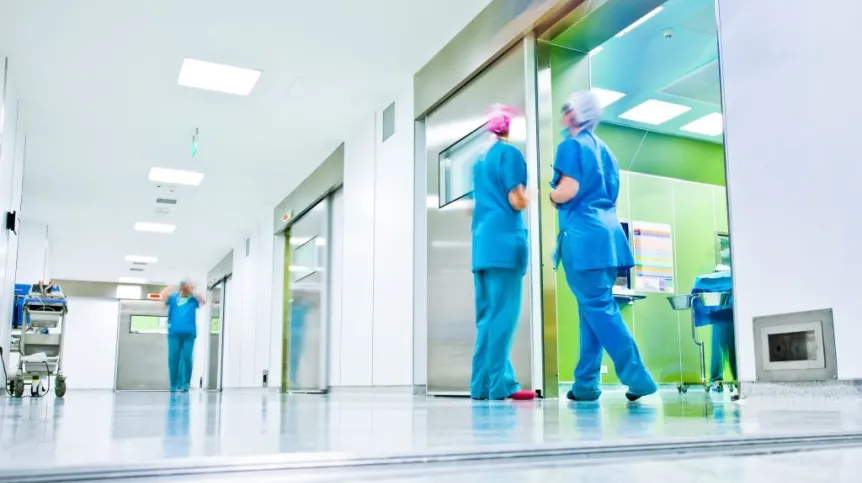
A device, which in the future may help prevent bacterial epidemics in hospitals, has been developed by an international team of scientists. According to the researchers\' assumptions, the device will identify nine strains of bacteria within 15 minutes.
"The device we have designed is a quick and inexpensive method for detection of strains of bacteria in hospitals, which are a threat to patients, particularly to the elderly" – we can read in the release sent by Maastricht University.
The main author of the device is Bart van Grinsven - physicist and Assistant Professor at Maastricht University. His team also has a Polish member - Aleksandra Kordek.
"The device we have designed exceeds the capabilities of the current bacteria detection platforms in terms of performance, sensitivity and price. The combination of heat-transfer method (HTM) and surface imprinted polymers (SIPs) is extremely clever, and I believe that it can revolutionize bacteria detection technology used in research and medicine. Our goal is to build a tool for the detection and identification of bacteria, which will return results in 15 minutes" - explained Aleksandra Kordek, Maastricht University graduate.
For now, the sensor can identify two strains of bacteria: Escherichia coli and Staphylococcus aureus. It will also distinguish between live and dead bacteria. In the future, there will be nine strains that can be identified. Kordek noted, however, that the identification speed will depend on the type of measurement and the bacteria itself.
According to Maastricht University, the advantage of the device is its mobility. This allows the device to be used in any environment, including operating rooms and intensive care units. In order to use the device in a hospital, the samples must be taken from the test surface in the hospital and transferred to the measuring chamber containing the sensor designed by scientists. "Our method requires little equipment, and the resulting data are easy to read" - explained Aleksandra Kordek.
The use of the device by hospitals will reduce the need for laboratory tests, offering the ability to immediately diagnose individual cases of bacterial infections. "Like other so-called bedside testing methods, portable device allows to take swift and well-targeted actions aimed at preventing the spread of the source of infection" - reads the university release.
"Although the results are very promising, there is also a range of issues, such as the reproducibility of results and sensitivity, which must be solved in order to translate our knowledge into a usable tool" - Aleksandra Kordek noted in an interview with PAP. Finished version of the device is expected to be ready in four years.
Information about the development of the device has been published by the journal the American Chemical Society "ACS Sensors".
PAP - Science and Scholarship in Poland, Ewelina Krajczyńska
ekr/ agt/ mrt/
tr. RL













